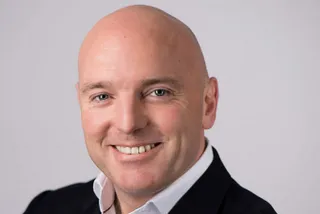
How the Workplace will Evolve over the Next 10 Years | A Q&A with Nigel Jeremy
When we caught up with Nigel he had just finished his final few weeks at British Airways. Having taken a bit of time to catch his breathe, and practice his golf swing, we swooped in to fire off a series of burning questions we had about how the workplace is going to evolve over the next 10 or so years.
Thankfully, Nigel was kind enough to spare the time and let us pick his brains! So, without further ado, let's find out what the future has in store
Here at Speakers Corner we’re very much exploring remote and flexible working, with a few of our colleagues even working from Spain. In your opinion, how is the world of work going to evolve over the next 10 or so years?
Wow, massive subject ! I think we are already seeing a revolution in the workplace. The needs and expectations of today’s workforce are evolving at a pace never previously experienced. I expect to see significant increases in flexible working, home working, portfolio careers where individuals are holding multiple jobs at the same time. An expectation that employment and career opportunities are truly multi-cultural, multi national and gender neutral.
This will place challenges on all businesses and HR teams around the types of people policy we develop, how we engage and reward our people and how we ensure they have the skills and desire to represent our brand well. This will mean adapting how we lead and manage and how we attract and develop the right skills in a fast changing world.
A continuously updated Internal Communications strategy will also be key given the rapid changes in technology and people’s communications preferences.
How do businesses meet the desires and dreams of Millenials and Generation Z, while also juggling the more senior generations and create a perfect workplace harmony?
There is a huge amount of research now available on how the different generations are interacting in the workplace. It is a subject I speak on regularly and it’s not easy to provide a simple answer. The big point for leaders and HR is to seek to understand how these different generations are behaving, communicating and engaging differently. This will then enable organisations to ask good questions about what strategies and policies they want to adapt depending on how their workforce demographic is evolving.
Building a high-performance culture is an incredibly common vision from businesses, but one which is notoriously hard to achieve. What are the first steps businesses need to take on this journey?
In my view there are 3 steps to take:
- Be clear on your performance management framework, focus on helping managers to follow the process of reviewing performance with their people.
- Have a clear view on the behaviours/competencies you want from your people. Describe them simply and connect them to your performance review process.
- Use the behaviours in everything you do with people. Recruitment, Performance Management, Talent identification, People Development Portfolios and link good behaviour to reward.
Looking back on your career, which spans periods of success with leading brands including Marks & Spencers, Vodafone and most recently British Airways, what are some of the key lessons you learnt which you share with audiences?
The people issues and priorities in most large business are very much the same but it’s the context that’s different. We need to adapt great HR practice to suit the organisations strategy, culture, level of maturity and position in its economic cycle. At the end of the day, all organisations want a highly engaged and productive workforce. The way in which we seek to deliver these needs and how we sequence the key deliverable on HR strategy will remain company specific. HR needs to remain agile in adapting to shifting demands from whatever business it serves and the market in which it operates.
If there was one message you wanted to leave your audience with, what would that be?
I’d say always try to keep things simple. The world is complicated enough and we should avoid over engineering our solutions. Good enough is good enough. I have found with most organisations on most issues, it’s better to be “80% perfect” with a simple change solution that can be rolled out and understood quickly than 100% perfect which often requires much higher complexity and is harder to roll out because it’s harder to understand and maintain. Clearly, in matters of safety and security the benchmark needs to be higher but, in the main, Keep it Simple.
And finally, what’s next for you?
My focus will be on writing my next book around “developing teamwork in the workplace”, more speaking engagements and some Non Exec Director work.
Thanks for your time Nigel and best of luck with your new book!
For further information or to book one of our speakers, call us on +44 (0)20 7607 7070 or email info@speakerscorner.co.uk .
Newsletter Sign Up
If you liked this article then why not sign up to our newsletters? We promise to send interesting and useful interviews, tips and blogs, plus free event invites too.
Have an enquiry?
Send us a message online and we'll respond within the hour during business hours. Alternatively, please call us our friendly team of experts on +44 (0) 20 7607 7070.
